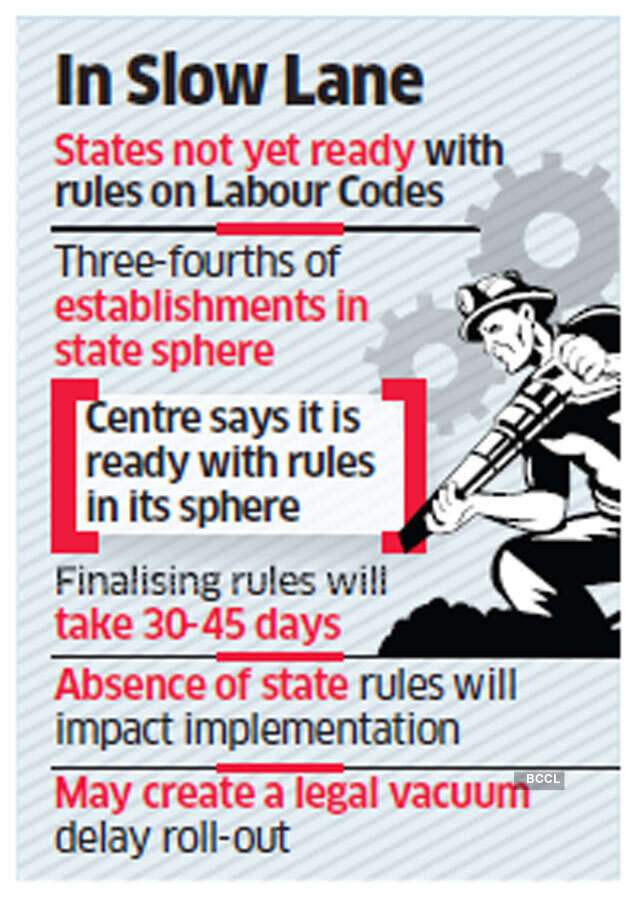 The government’s plan for a fast-track roll out of the four labour codes is facing some turbulence with states still to frame rules, leaving the Centre in a limbo about whether it should notify the rules in areas under its ambit.
The government’s plan for a fast-track roll out of the four labour codes is facing some turbulence with states still to frame rules, leaving the Centre in a limbo about whether it should notify the rules in areas under its ambit.
Absence of state rules may create a legal vacuum and defeat the entire purpose of labour reforms as three-fourths of the total establishments come under states’ ambit. The Centre’s sphere includes establishments in ports, docks, mines, banking and insurance and railways while the majority of the manufacturing and services sector falls in the state sphere.
A top government official told ET that barring Jammu & Kashmir, not even a single state had framed rules under the four Codes till February end, which could delay the process of rolling out the labour reforms. States have yet to put out even the draft rules under the four Codes for stakeholder consultations, which require 30-45 days.
“A call has to be taken on whether the Centre goes ahead and notifies its rules or waits for states to frame theirs so that labour law changes can be implemented more effectively,” the official said, on the condition of anonymity.
Labour secretary Apurva Chandra had held a virtual meeting with all states on January 29 during which at least nine states assured the Centre on finalising the rules by the end of February.
 The Centre is ready with rules under the four Codes as it is keen to roll out those from the beginning of the next fiscal year in April, but experts say the deadline was unlikely to be met. They pointed out that even if the Centre notified the rules in its sphere, it would only be symbolic in nature.
The Centre is ready with rules under the four Codes as it is keen to roll out those from the beginning of the next fiscal year in April, but experts say the deadline was unlikely to be met. They pointed out that even if the Centre notified the rules in its sphere, it would only be symbolic in nature.
“Rolling out Labour Codes from April 1 is not realistic in the current circumstances,” said KR Shyam Sundar, a labour economist and professor at XLRI. “States’ sphere accounts for the lion’s share of establishments and with states not yet ready with their rules, the effective implementation on the ground will not happen,” he added.
According to Sundar, the central and state governments should have sought technical help from the International Labour Organization on framing the rules.
Parliament has already given its go ahead to the four Codes — the Code on Wages in 2019 and the Social Security Code, the Industrial Relations Code and the Code on Occupational Safety, Health and Working Conditions in September last year.
Following this, the Centre held several rounds of consultations with stakeholders and finalised its rules across all the four Codes by the end of January.